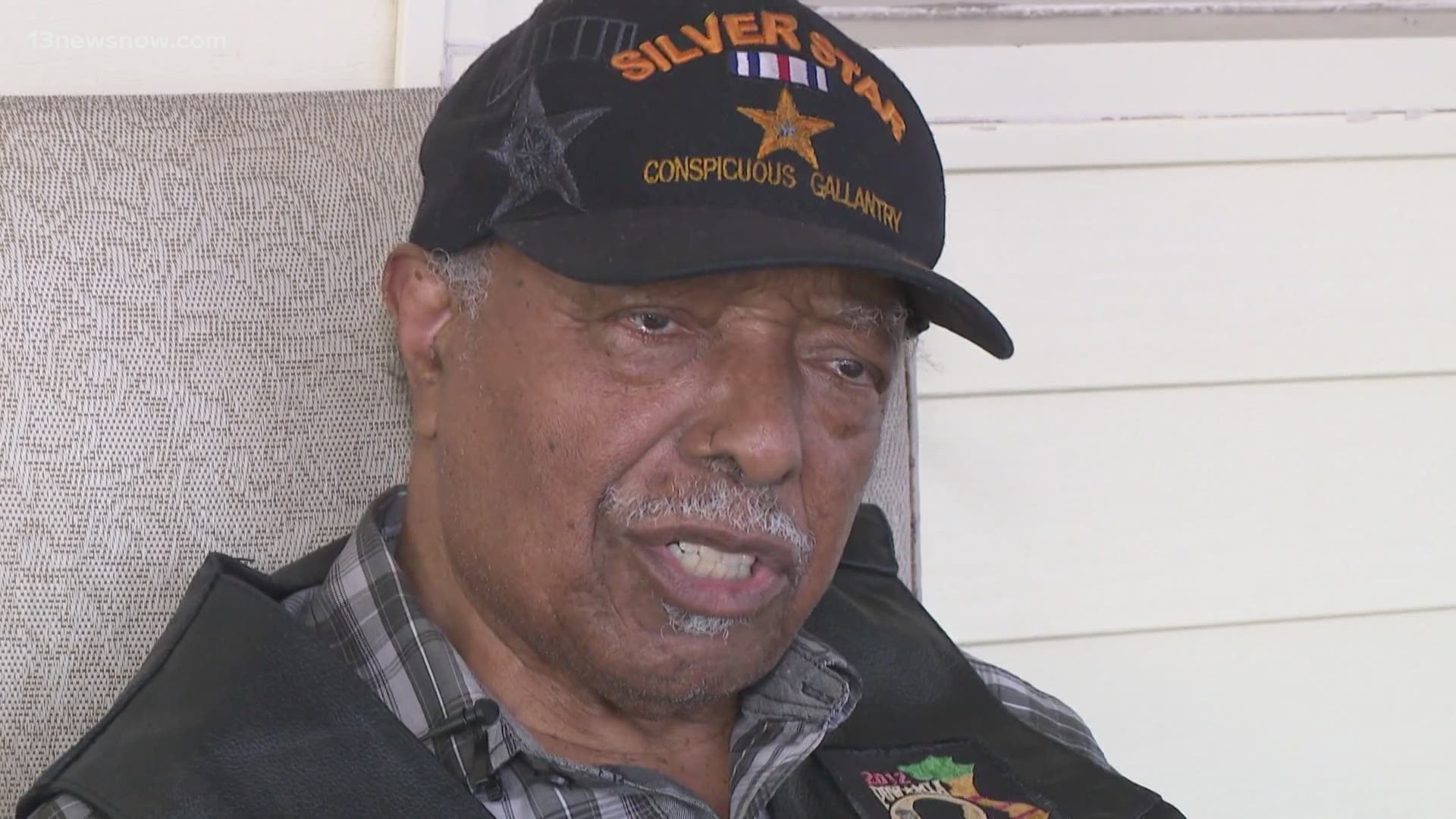NEWPORT NEWS, Va. — Just 2.6 percent of the more than 3,500 Medals of Honor awarded to U.S. troops since 1863 have gone to African Americans.
The vast majority of those decorations were bestowed prior to World War I. Between 1861 and 1918, the Medal was awarded nearly 3,000 times.
Still, the math is pretty hard to accept for modern-day Black veterans.
"We know it was unfair, so what do we do now?" asked Vietnam War Army veteran Jim Cornish of Newport News, Virginia. "How do we tell what's going to happen now? I mean, you can't get it back."
The decades since Vietnam are long gone, of course. And after 54 years, so, too -- in all likelihood -- are members of Cornish's immediate chain of command who could testify about specific acts of valor.
He received a Silver Star for "exceptionally valorous action" in 1967. He believes he should have gotten a Medal of Honor but was denied because of the color of his skin.
However, getting a medal upgrade is a pretty tall order. Army policy does not allow for self-nomination and under 10 U.S. Code, Section 1130, there are very specific rules regarding who can.
Army Medal of Honor Public Affairs Sergeant First Class Anthony Hewitt said, "In cases more than three years old, by law, the recommendation must be endorsed by a member of Congress and forwarded to the Service Secretary for consideration.
"In all cases, as our nation's highest award for combat valor, the recommendation must present incontestable proof of the valorous act and is considered on the standard of extraordinary merit."
He added: "The Army may revisit a previous award decision if there is an indication of procedural error, impropriety, or if the recommender presents new, substantive and material information which fundamentally changes the original award recommendation."
Cornish is hopeful that by talking about it now, maybe he can bring about some change. His friend, fellow Vietnam War veteran and Silver Star recipient Zinerva White of Hampton, Virginia, is also hopeful.
"I believe it's going to be a wake-up call," he said. "That's my hope and my belief."
House Armed Services Committee Vice-Chair Rep. Elaine Luria (D-Virginia, 2nd District) suggests that legislative action may be needed.
"In cases like this, I think there can be a process and more steps that we can take to make sure that people's service and heroism and those deserving of the highest award for service to our country can be recognized," she said.
Luria continued: "Potentially, some flexibility or other means by which to review or substantiate that to the service secretaries, I think more flexibility in the process through the service secretaries could allow people to be recognized potentially who've been overlooked for their acts of valor and heroism."
Cornish said change can't come soon enough.
"It was a very unfair system," he said. "We fought just as hard as anybody else."
There is precedence for efforts to upgrade medals being successful. One week ago, Ralph Puckett of Georgia got the good news he's been waiting for, for a long time.
President Joe Biden called the 94-year-old retired colonel and Korean War vet to tell him of his decision to approve upgrading Puckett's Distinguished Service Cross to the Medal of Honor. No date for that presentation has been made public yet.
Of course, time could be running out for others. The nation's oldest Medal of Honor recipient, Iwo Jima veteran Charles Coolidge of Tennessee, died last month at the age of 99.
And, just this past Saturday, 89-year old Medal of Honor recipient and Korean War veteran Ernie West of Kentucky passed away.
There are now only 67 living Medal of Honor recipients.

